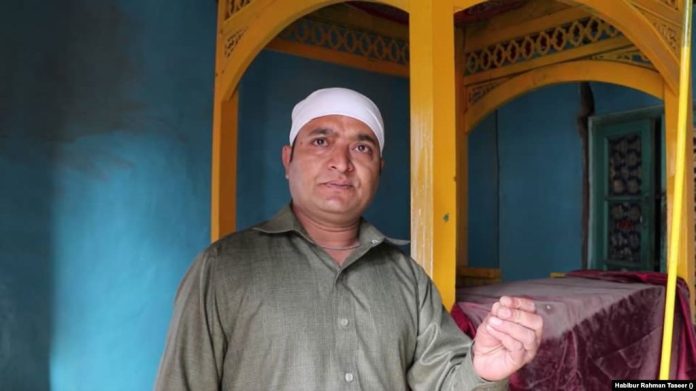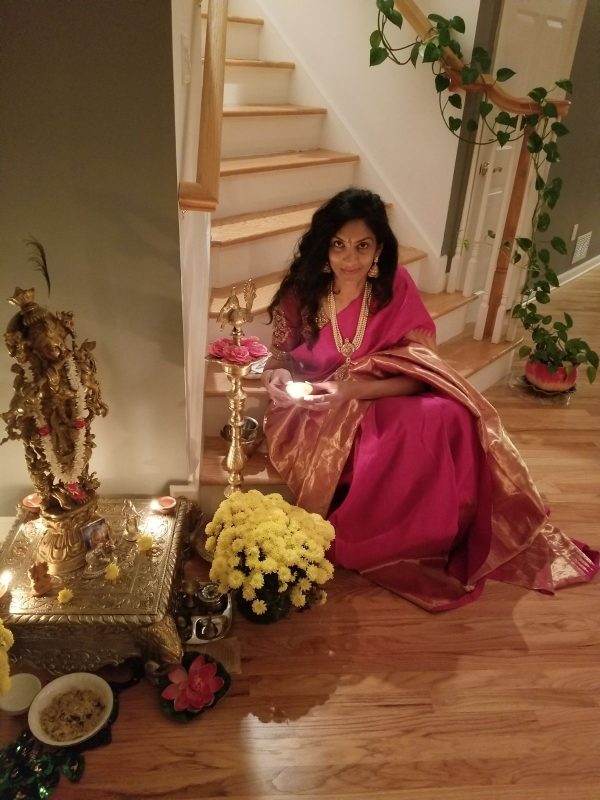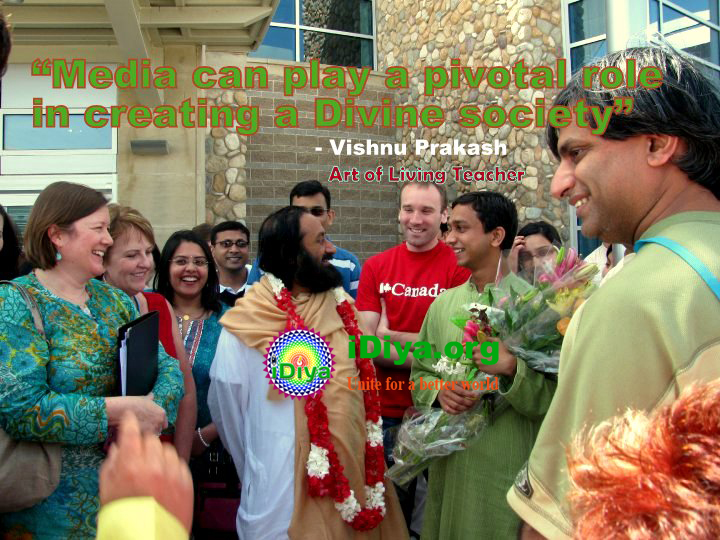
GHAZNI, Afghanistan — As the last Hindu resident of Ghazni, Raja Ram is making a stand. Despite fears for his safety following the recent departure of the city’s last 21 Hindu and Sikh families to India, he insists on staying in his homeland.
The Hindus and Sikhs fled decades of uncertainty, attacks, and business losses in the capital of a province also called Ghazni, which once boasted a vibrant trading community of several hundred Hindu and Sikh families that sold spices, herbal medicines, and textiles in the city and beyond. The city of 270,000 is now mourning the loss of its Hindu and Sikh neighbors.“We all love our homeland, but they had to flee after the attacks,” Ram told Radio Free Afghanistan, referring to a major attack on a Sikh temple this spring. The Islamic State (IS) militants claimed the March 25 attack, which killed 25 people in the capital, Kabul. The attack prompted the 250 families of Afghanistan’s tiny Hindu and Sikh community to begin the journey to India on special visas.
“To everyone, their homeland is Kashmir,” Ram said, quoting a Pashto proverb to illustrate that Afghanistan’s Hindu and Sikh minorities love their country as much as the fabled valleys of the disputed Himalayan region. “Members of our community have left with broken hearts because of their worsening circumstances here.” While members of two distinct faiths, Afghanistan’s tiny Hindus and Sikhs are considered one community.
While Afghanistan’s once 80,000-strong Hindu and Sikh community is on the verge of vanishing from the country, their Muslim neighbors and friends are saddened by their departure and long for the day when they can return.Abdul Majeed, a shopkeeper, remembers growing up with Hindu and Sikh friends in Ghazni. “We are really sad the attacks and insecurity ultimately forced them to leave,” he said. “I wish they could have stayed here and enjoyed living a normal life alongside us.”Ram, whose wife and four children have moved to India, is staying behind to look after a Hindu temple, a task for which the Afghan government pays him nearly $100 a month. He says his community has faced no persecution from Ghazni’s ethnic Pashtun, Tajik, or Hazara residents but the fear of being targeted in attacks by Islamist militants or kidnapped by criminals made them leave.
“Our forefathers have lived in harmony with local communities across Afghanistan,” he said.Raja Ram is one staying behind to look after the Hindu temple in Ghazni.
Last month, Sardar Gurbachan Singh Ghazniwal left Afghanistan. Like Ram, he lived in Ghazni but lost his business and property in the chaotic years of civil war in the 1990s. He resisted leaving Afghanistan and continued living at the Kabul temple, but after losing nine relatives in the March 25 attack Ghazniwal joined a group of exiled Afghan Hindus and Sikhs in India.
He tells Radio Free Afghanistan he began to feel alienated in his homeland. “Whenever I rode in a bus or a taxi, my [Afghan] Muslim brothers asked me, ‘Where do you come from in India Sardar?’,” Ghazniwal said. “Even when I speak fluent Pashto and Dari, I am not considered an equal [citizen],” he added, referring to Afghanistan’s two major languages.In Ghazni, residents lament that their Hindu and Sikh neighbors have left. “Sikhs are one of Afghanistan’s most peaceful communities,” said Haji Basir, a textile merchant in Ghazni’s Bazazi neighborhood. He says he often misses his neighbor, Otar Singh, who owned a shop next to his. “I am very sad that he has left. I am sad for all our compatriots Sikhs and Hindus who have left,” he told Radio Free Afghanistan.Rahima, a housewife in Ghazni, misses her Hindu friend Sapna. “We were very happy and often visited each other’s houses,” she told Radio Free Afghanistan. “I often miss Sapna and am very sad that she left.”
Matiullah Kamalpuri, a local aid worker, says a large Hindu and Sikh community once thrived in the capital and provinces such as Ghazni, Helmand, Nangarhar, Khost, and Paktia. “They were a part of our national fabric,” he noted. “They were a patriotic people and were committed to serving our country and their communities,” he added. “We are saddened over their departure; it is a major loss.”
Wahidullah Jumazada, spokesman for the provincial governor, says the authorities are also dismayed over the departure of Ghazni’s Hindus and Sikhs. “They were a prominent fixture in our celebrations, but we now have no one to invite to our gatherings,” he said.But Narender Singh Khalsa, Afghanistan’s lone Sikh lawmaker, wants the authorities to act to provide security so that they can have confidence in their future. “Four months after the attack on our temple, the government has done nothing to reconstruct it, so we do not see anything that can boost our confidence [that we are protected here],” he told Radio Free Afghanistan last month.Back in Ghazni, Ram hopes to reunite with his wife and their two sons and two daughters in a peaceful Afghanistan where Hindus and Sikhs can live as equal citizens. “I hope that everyone will return to Afghanistan once there is peace here,” he said. “The Hindus and Sikhs are sons of this soil — they are Afghans, too.”
Abubakar Siddique wrote this story based on Habibur Rahman Taseer’s reporting from Afghanistan.
Article recieved from Gandhara











